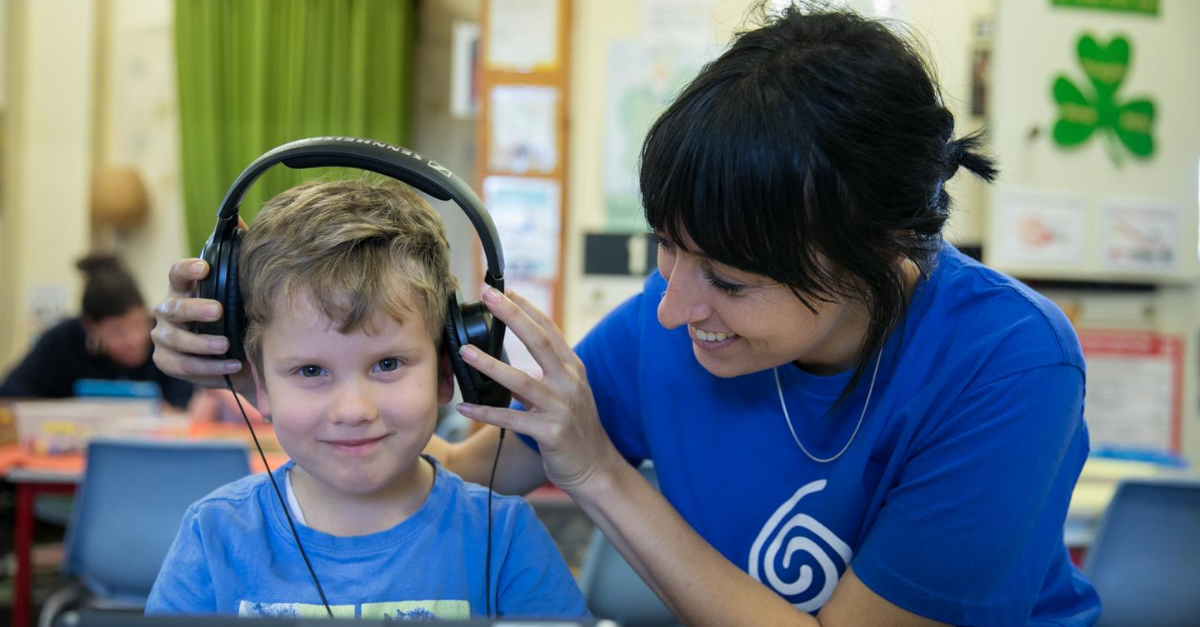5 Questions About Hearing Loss In Children
February 2, 2020

The impact of hearing loss in children is still commonly misunderstood. We recently asked our Facebook followers 5 questions to find out what they knew about this issue. Here are our answers:
1. Do Australian Primary school children have their hearing checked when they start school?
In most states and territories, Australian primary school children do not have their hearing checked before starting school. In NSW, preschool children are offered a sight test, but not a hearing test.
2. Children who have their hearing tested at birth, and have no hearing loss, never need to get their hearing tested hearing again. True or false?
Many hearing issues can develop in the years after birth. Illness, injury and genetics can cause a child to develop debilitating hearing loss. If left untreated, they can have a profound impact on their life. As a result, more children are first fitted with hearing aids during the first three years of school than are fitted in their first year of life (as shown by data from Australian Hearing).
3. Hearing problems are a common cause of speech, learning, and behavioral problems in Australian children. True or False?
A child who can’t understand their teacher, can’t give their full attention to learning.
The consequences for the child include:
- delays in speech and language development
- difficulties in learning to read because of an inability to focus on and manipulate individual sounds (phonemes) in spoken words
- trouble in social situations
- increased risk of academic failure. [1]
According to the American Speech-Language-Hearing Association (ASHA), children who have mild to moderate hearing loss and don’t get help, are likely to fall behind anywhere from one to four grade levels.
4. Not all hearing loss is permanent. True or False?
Sensorineural hearing loss is a permanent condition. It’s typically treated by the use of hearing aids.
Conductive loss can be caused by issues in the outer or middle ear. It can be treated by clearing the blockage (such as wax) or taking medication. In some cases, surgery is needed to treat the problem.
There’s also a brain-based hearing issue called spatial processing disorder (SPD). This affects a child’s ability to hear in noise. Once identified, hearing care professionals can treat the problem easily.
Whatever the hearing problem, the right treatment can ensure a better outcome for every child.
5. If a child has undetected hearing loss it will impact their ability to learn and socialise. True or False?
Delays in identifying hearing loss in children, and putting appropriate interventions in place, can result in significantly lower school performance.
It’s critical that even mild hearing loss is identified as soon as possible. [2] Unfortunately, many children with hearing loss or auditory processing disorder go undiagnosed. They’re often misdiagnosed as “inattentive”, “ADD”, “ADHD”, “dyslexic”, “learning disabled” or as having behavioural problems.
Early detection is the best solution. If you’re concerned about your child’s hearing, go to the App Store or Google Play and download the Sound Scouts app today.
[1] Bilateral hearing loss is associated with decreased nonverbal intelligence in US children aged 6 to 16 years, Emmett, S.D., and Francis H.W, Laryngoscope, (2014)
[2] The minimally hearing-impaired child. Bess F, Ear and Hearing (1985)

